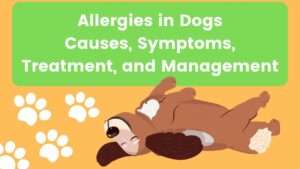Dogs are known for their voracious appetites and curiosity about the world around them, often leading pet owners to wonder about what foods are safe for their furry companions. Oysters, with their unique taste and texture, might pique the interest of dog owners considering sharing their culinary delights with their pets. But can dogs eat oysters safely? Let’s dive into the details to uncover the answer.
Contents Overview
What is Oysters
Oysters are shellfish that live in marine or brackish water habitats. They have a hard, rough shell that protects their soft body inside. Oysters are often prized for their delicate flavor and are enjoyed by humans around the world, either raw or cooked. They are rich in essential nutrients like protein, zinc, iron, and omega-3 fatty acids, making them a nutritious addition to diets. Oysters play a vital role in marine ecosystems, filtering water and providing habitat for other marine species.
Nutritional Value of Oysters
Oysters are a nutritional powerhouse, packed with essential nutrients beneficial for both humans and animals. They are an excellent source of protein, which is crucial for muscle development and overall body function. Additionally, oysters contain significant amounts of zinc, iron, and omega-3 fatty acids. Zinc supports immune function and wound healing, while iron is essential for red blood cell production and preventing anemia. Omega-3 fatty acids contribute to heart health and can help reduce inflammation in the body. Overall, incorporating oysters into a balanced diet can provide a boost of essential nutrients to support overall health and well-being.
Can Dogs Eat Oysters safely?
Yes, dogs can eat oysters safely, but certain precautions should be taken. It’s essential to feed dogs cooked oysters to eliminate the risk of bacterial contamination present in raw oysters. Additionally, ensure that all shells are removed to prevent choking hazards or intestinal blockages. While oysters are not common allergens for dogs, it’s crucial to monitor for any signs of allergic reactions after consumption. When given in moderation, cooked oysters can provide dogs with essential nutrients like protein, zinc, iron, and omega-3 fatty acids, contributing to their overall health and well-being.
Benefits of Oysters to Dogs
Oysters, a delicacy for humans, are also garnering attention for their potential benefits to our canine companions. Can these ocean treasures offer more than just a tasty treat for our furry friends? Let’s dive deeper into the potential benefits of oysters for dogs.
- Rich Source of Nutrients:
- Oysters are packed with essential nutrients, including vitamins such as A, C, and B12, as well as minerals like zinc, iron, and selenium.
- These nutrients play crucial roles in supporting various bodily functions in dogs, from maintaining healthy skin and coat to supporting immune function.
- Omega-3 Fatty Acids:
- Oysters are abundant in omega-3 fatty acids, particularly EPA (eicosapentaenoic acid) and DHA (docosahexaenoic acid).
- These fatty acids are known for their anti-inflammatory properties, which may benefit dogs with conditions such as arthritis or skin allergies.
- Supports Joint Health:
- The presence of omega-3 fatty acids in oysters can contribute to joint health in dogs by reducing inflammation and promoting joint lubrication.
- This can be particularly beneficial for aging dogs or those prone to joint issues.
- Promotes Brain Health:
- DHA, one of the omega-3 fatty acids found in oysters, is vital for brain development and function.
- Including oysters in a dog’s diet may support cognitive function and overall brain health, especially in senior dogs.
- Boosts Immunity:
- Oysters contain significant levels of zinc, selenium, and vitamin C, all of which are essential for a robust immune system in dogs.
- Adequate intake of these nutrients can help strengthen the body’s defense against infections and diseases.
Potential Risks and Precautions of Feeding Oysters to Dogs
While oysters offer several potential benefits for dogs, it’s essential to consider the potential risks and take necessary precautions when incorporating them into their diet. Understanding these risks can help ensure the safety and well-being of our furry friends.
- Choking Hazard:
- Oysters can pose a choking hazard, especially if fed whole or in large chunks.
- To mitigate this risk, it’s advisable to finely chop or grind the oysters before feeding them to dogs, particularly small breeds or those prone to gulping their food.
- Allergic Reactions:
- Like humans, dogs can develop allergic reactions to certain foods, including shellfish like oysters.
- Symptoms of an allergic reaction may include itching, swelling, vomiting, diarrhea, or difficulty breathing.
- Before introducing oysters into a dog’s diet, it’s crucial to monitor them closely for any signs of allergy and consult with a veterinarian if any adverse reactions occur.
- Bacterial Contamination:
- Raw oysters can harbor harmful bacteria such as Vibrio species, which can cause gastrointestinal upset or more severe illnesses like food poisoning.
- To reduce the risk of bacterial contamination, it’s recommended to thoroughly cook oysters before feeding them to dogs.
- Additionally, ensure that the oysters are sourced from reputable sources and are fresh to minimize the risk of foodborne illnesses.
- High Sodium Content:
- Oysters naturally contain sodium, which can be problematic for dogs, especially those with certain health conditions like hypertension or heart disease.
- Feeding oysters in moderation and balancing their sodium intake with other low-sodium foods is essential to prevent potential health issues.
- Potential Mercury Contamination:
- Oysters, like other seafood, may contain trace amounts of mercury, which can be harmful to dogs if consumed in large quantities over time.
- While occasional consumption of oysters is unlikely to pose a significant risk, it’s essential to consider the cumulative effect of mercury exposure from various sources in a dog’s diet.
Safe Ways to Feed Oysters to Dogs
Feeding oysters to dogs can be a nutritious addition to their diet, but it’s essential to do so safely to prevent any potential risks. By following safe feeding practices, pet owners can ensure that their canine companions enjoy the benefits of oysters without compromising their health.
- Cooking Thoroughly:
- Cooking oysters thoroughly before feeding them to dogs is crucial to eliminate harmful bacteria and reduce the risk of foodborne illnesses.
- Boiling, steaming, or baking oysters until fully cooked ensures that any potential pathogens are destroyed, making them safe for consumption by dogs.
- Removing Shells:
- Before feeding oysters to dogs, it’s important to remove the shells to prevent choking or gastrointestinal blockages.
- Carefully shuck the oysters and discard the shells before serving them to dogs, ensuring that only the soft, cooked meat is provided.
- Chopping or Grinding:
- To further reduce the risk of choking, especially for smaller breeds or dogs prone to gulping their food, consider chopping or grinding the cooked oysters into smaller, manageable pieces.
- Finely chopping or grinding the oysters also facilitates mixing them into other foods, such as kibble or homemade meals, for added variety and nutrition.
- Moderation:
- While oysters can be a healthy addition to a dog’s diet, moderation is key to prevent overconsumption and potential health issues.
- Limit the frequency and quantity of oysters fed to dogs, incorporating them as an occasional treat or part of a balanced meal rather than a staple food.
- Monitoring for Adverse Reactions:
- After introducing oysters into a dog’s diet, closely monitor them for any signs of allergic reactions or gastrointestinal upset.
- Symptoms to watch for include itching, swelling, vomiting, diarrhea, or changes in behavior. If any adverse reactions occur, discontinue feeding oysters and consult with a veterinarian.
When to Avoid Oysters to Dog
- Allergic Reactions: If your dog has a known allergy to shellfish or seafood, it’s best to avoid feeding them oysters.
- Digestive Sensitivity: Dogs with sensitive stomachs or digestive issues may experience gastrointestinal upset after consuming oysters.
- History of Choking: If your dog has a history of choking or difficulty chewing, it’s wise to refrain from feeding them whole or large pieces of oysters.
- High Sodium Diet: Dogs with certain health conditions, such as hypertension or heart disease, should avoid foods high in sodium, including oysters.
- Mercury Concerns: If you’re concerned about mercury exposure in your dog’s diet, particularly for breeds prone to mercury sensitivity, it may be best to avoid feeding them oysters regularly.
Safe and Suitable Alternatives of Oysters for Dogs
Safe and suitable alternatives to oysters for dogs include other types of cooked seafood such as salmon, tuna, or shrimp, which provide similar nutritional benefits without the risk of shell ingestion. Additionally, lean meats like chicken, turkey, or beef can be excellent protein sources for dogs, while fruits and vegetables such as blueberries, carrots, and spinach offer vitamins, minerals, and antioxidants. It’s important to ensure that any alternative foods are cooked thoroughly, free from bones, and suitable for your dog’s individual dietary needs and preferences. Consulting with a veterinarian can help determine the best alternatives for your furry friend.
Bottom Line
In conclusion, while dogs can eat oysters, it’s essential to take precautions to ensure their safety and well-being. Opt for cooked oysters to avoid the risk of bacterial contamination, remove the shells completely, and introduce them gradually into your dog’s diet while monitoring for any adverse reactions. When given in moderation, oysters can offer nutritional benefits to dogs, contributing to their overall health and vitality. As always, consult with your veterinarian before making any significant changes to your dog’s diet to ensure it aligns with their specific nutritional needs and health status.



































+ There are no comments
Add yours